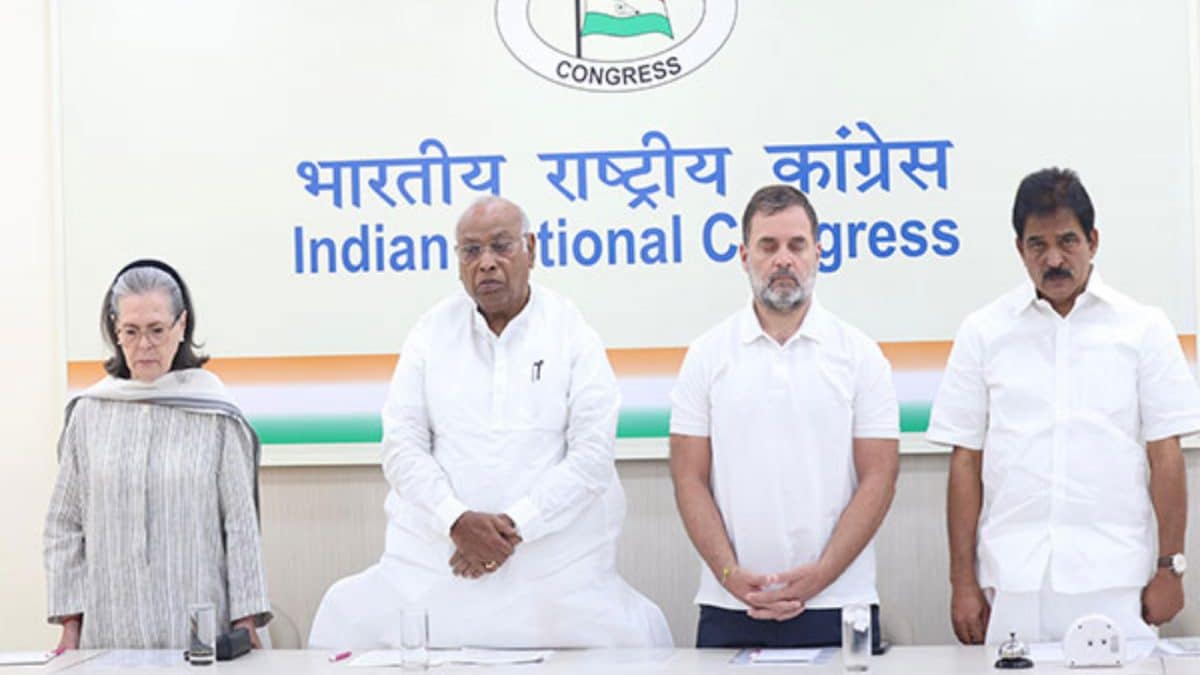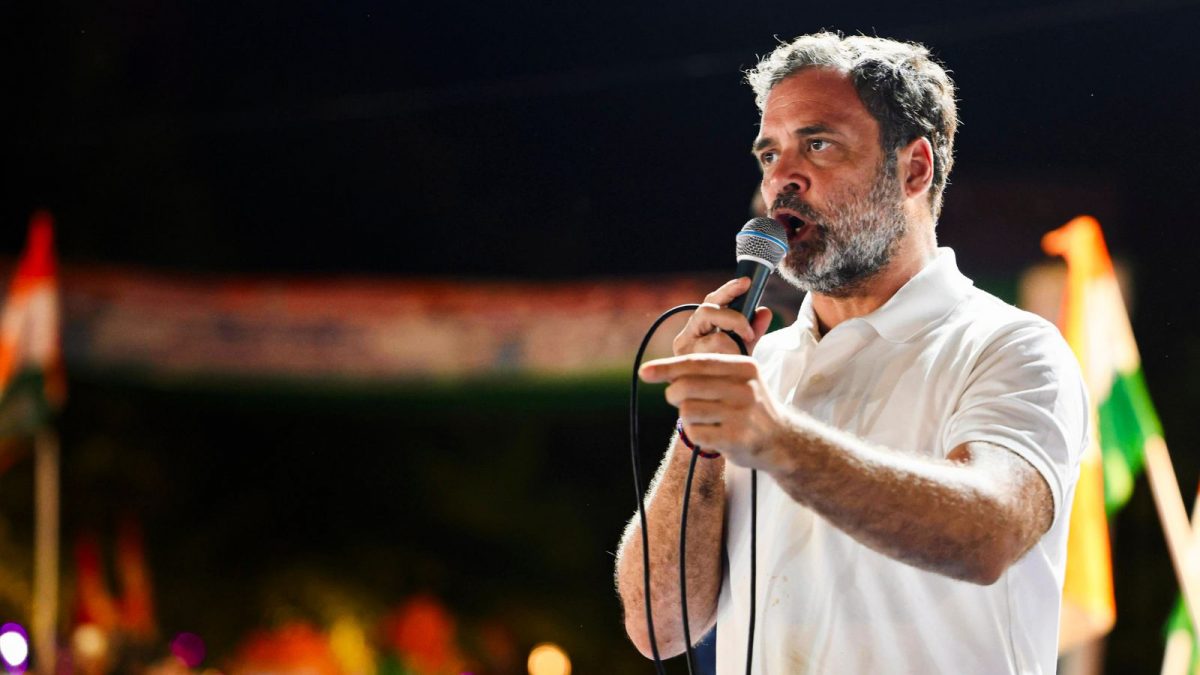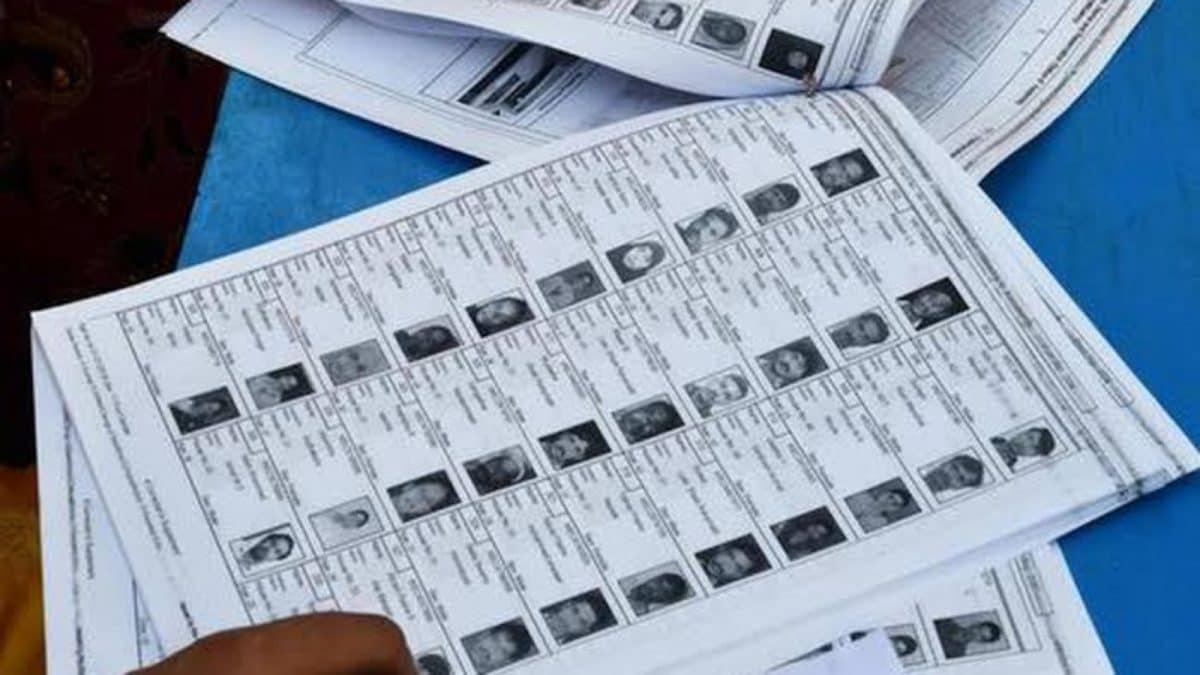Last Updated:
The internal chaos was compounded by strategic blunders and a failure to heed ground-level warnings

Beyond local failures, the central leadership’s national narratives also failed to resonate with the Bihar electorate. File pic
The dismal performance of the Congress in the Bihar assembly elections—struggling even to secure single-digit leads—has been attributed to a profound disconnect between the party’s central leadership in Delhi and its local functionaries in Patna.
This internal chaos was compounded by strategic blunders and a failure to heed ground-level warnings, highlighting the consequences of treating Bihar as a mere testing ground for high-command experiments.
Leadership Failures
The first visible sign of disarray was the appointment of Krishna Allavaru as the state in-charge. Local party workers frequently complained about the Delhi-flown leader’s inaccessibility and struggled to pronounce his name, referring to him jokingly as anything from “aloe vera” to “alallla.” This tongue-twister of a name symbolised the chasm: a distant leadership that could not even communicate effectively with its own cadre.
Many state leaders were irked that Bihar had become a recurrent site for political experiments dictated by Rahul Gandhi and his close circle. The earlier attempts to revitalise the Youth Congress through internal elections and, subsequently, by parachuting young leaders from outside had both previously failed. This time, during the election, a semblance of strategy was expected, yet chaos reigned. Plans were formulated at a prominent Patna five-star hotel, with strategists meeting daily over elaborate breakfasts and endless coffee, only to visit the Congress office briefly before retreating.
Corruption Allegations and Ignored Dissent
Simmering anger over ticket distribution was flagrantly ignored. Scenes of open dissent and angry confrontations at the Patna office, where Allavaru and state chief Rajesh Ram were surrounded by agitated workers, were dismissed as mere “enthusiasm” of ticket seekers. However, the underlying resentment was profound, driven by serious allegations of corruption and claims that tickets were being sold, leading to deserving and winnable local candidates being overlooked. The consequences of this internal mismanagement are now glaringly evident in the party’s results.
Within the Mahagathbandhan, two major missteps by the Congress damaged alliance unity and optics. Firstly, the party delayed the official announcement of Tejashwi Yadav as the chief ministerial face. The eventual confirmation occurred without the presence of either the Gandhis or the Congress President, creating an impression that Tejashwi was not being given due importance. This perception was reinforced when the alliance’s manifesto release was also conducted in the absence of the central Congress leadership.
Failed Central Narratives and Campaign Missteps
Beyond local failures, the central leadership’s national narratives also failed to resonate with the Bihar electorate. The “vote chori” (vote theft) theme, aggressively pushed by Rahul Gandhi, proved to be a flop.
On the eve of the first phase of Bihar polling, Rahul Gandhi held a high-profile press conference in Delhi, where he alleged that 25 lakh votes had been “stolen” in the Haryana assembly elections, terming the purported fraud a “hydrogen bomb”. This move, intended to build a narrative of electoral malpractice across the country, did not strike a chord with Bihar’s voters, who were focused on local issues such as jobs and price rise. Instead of mobilising the electorate, the focus on “vote theft” was seen by many critics within the party as an expression of preemptive defeatism and a distraction from core issues.
Furthermore, the “Voter Adhikar Yatra” campaign alongside Tejashwi was also marred by controversy. During the yatra, Mahagathbandhan supporters allegedly hurled abuses at Prime Minister Narendra Modi’s late mother, a deeply emotional and sensitive issue that the BJP instantly leveraged to attack the opposition’s culture and values. The controversial episode overshadowed the yatra’s intended message of electoral rights, further alienating conservative and women voters.
Despite the collective failure, with the party struggling across constituencies, senior leaders like Nikhil Kumar and Shakeel Ahmad, who resigned in protest, pointed out that the central command ignored warnings about flawed ticket allocation and the missed opportunity to acknowledge women’s power in the campaign. The final irony remains that while the election results provide a damning verdict on the Congress strategy, the Gandhis are once again seemingly absent from the scene of action.

Pallavi Ghosh has covered politics and Parliament for 15 years, and has reported extensively on Congress, UPA-I and UPA-II, and has now included the Finance Ministry and Niti Aayog in her reportage. She has als…Read More
Pallavi Ghosh has covered politics and Parliament for 15 years, and has reported extensively on Congress, UPA-I and UPA-II, and has now included the Finance Ministry and Niti Aayog in her reportage. She has als… Read More
November 14, 2025, 17:07 IST
Read More







